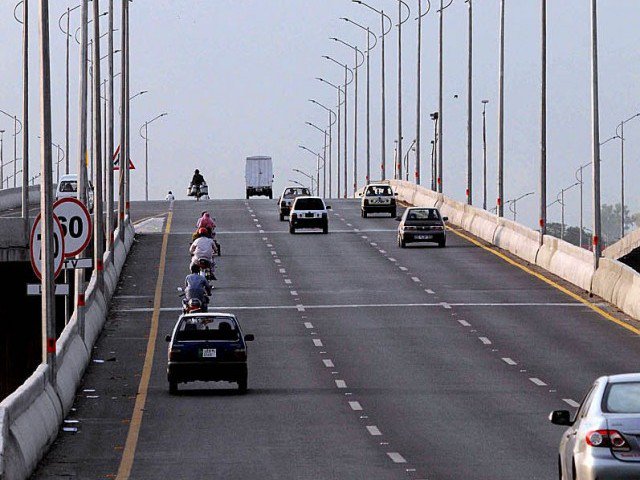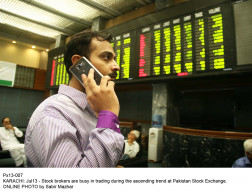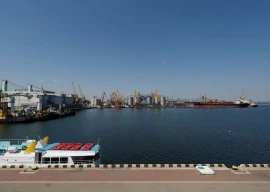
The move may stir controversy, as the original plan binds the FWO to arrange Rs5 billion commercial loan with the help of the finance ministry. While chairing his maiden meeting of the Executive Committee of National Economic Council (Ecnec), Prime Minister Shahid Khaqan Abbasi approved to change the financing modalities of construction of the Lahore-Sialkot Motorway at a cost of Rs45.38 billion, according to a PM Office handout.
Budget 2017-18: Pindi Ring Road project excluded from Punjab ADB
The Ecnec waived the requirement to arrange the Rs5 billion commercial loan component and directed the Planning Commission to give the money from Public Sector Development Programme, said the sources.

Under the BOT model, the contractor is supposed to arrange the funds from its own resources and recover the cost and profit by operating the road for a certain period.
Under the original agreement, signed by the National Highway Authority (NHA) with a project company wholly owned by the FWO, the government of Pakistan was required to fill the financing gap only to the extent of Rs18 billion to make the project financially viable. The FWO was required to arrange about Rs21 billion from its own resources. The NHA is supposed to provide Rs1.5 billion as overhead expenses. Now this Rs18 billion subsidy has been increased to Rs23 billion. In August last year, former prime minister Nawaz Sharif had performed the ground-breaking of the Lahore-Sialkot motorway project.
The Ecnec in total approved eight projects worth Rs125 billion including Lahore-Sialkot motorway project. By excluding the motorway project, new approved projects cost is Rs80 billion.
Amid financial and administrative challenges in implementing the Prime Minister’s National Health Programme, the Ecnec also approved a second revision in the flagship programme, reducing its scope in the two provinces ruled by opposition parties.
The Ecnec approved the second revision in the Rs8.1 billion project to pick the cost of primary health insurance in Khyber-Pakhtunkhwa (K-P) and Sindh after the two provincial governments had declined to contribute their share in the scheme. However, the federal government drastically reduced the coverage area in both the provinces, restricting to just 10% of the original plan in the PTI-ruled K-P and 35% in Sindh governed by the PPP.
Sharif launched the health scheme in 2015 aimed at reducing ‘out-of-pocket’ expenditure on health by vulnerable segments of society across the country.
Both Sindh and K-P had refused to pay for the primary health insurance, arguing that the scheme had been launched by the federal government so it should bear the entire burden. However, the two provincial governments agreed to pay for the secondary healthcare projects.
The Ecnec also approved Rs8.3 billion project for the construction of Chitral - Garam Chashma. The project envisages construction, rehabilitation, improvement and widening of existing 82.5 km road. Nawaz Sharif had announced this project during his recent visit to Chitral.
Accidents ‘cause Rs100b loss’ to exchequer annually
The Ecnec approved dualisation and improvement of Old Bannu Road worth Rs17.9 billion. The project envisages dualisation and improvement of two existing sections of 2 lanes old Bannu road measuring 83 km. It approved another road project dualisation and improvement of Pindigheb - Kohat Road at a cost of Rs18.7 billion cost.
The Ecnec approved construction of new 132 kv grid stations and transmissions lines in jurisdiction of Sukkur electricity power company at a cost of Rs12.6 billion. It approved another project for Energy Loss Reduction in SEPCO at Rs10.5 billion. The third SEPCO project - distribution of power - was also approved at Rs3.8 billion for expansion of the distribution network of SEPCO.
Published in The Express Tribune, August 30th, 2017.
Like Business on Facebook, follow @TribuneBiz on Twitter to stay informed and join in the conversation.

















COMMENTS (2)
Comments are moderated and generally will be posted if they are on-topic and not abusive.
For more information, please see our Comments FAQ